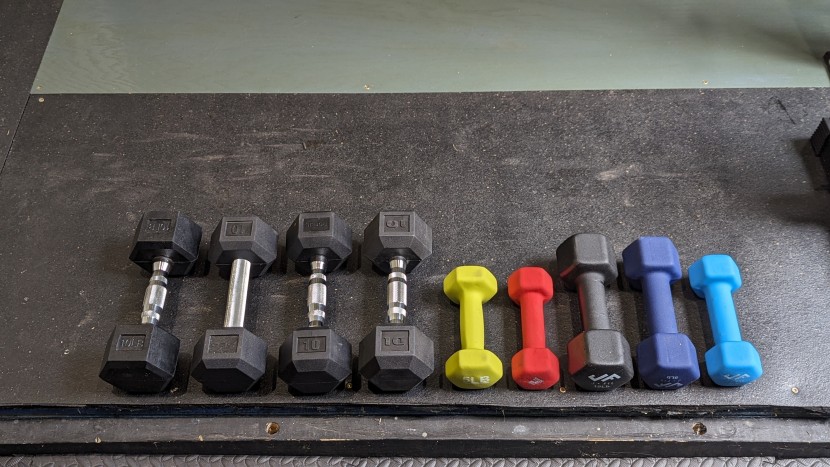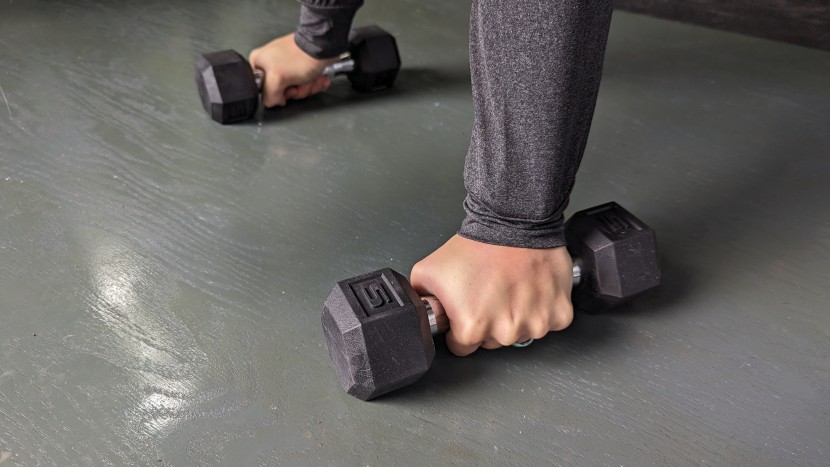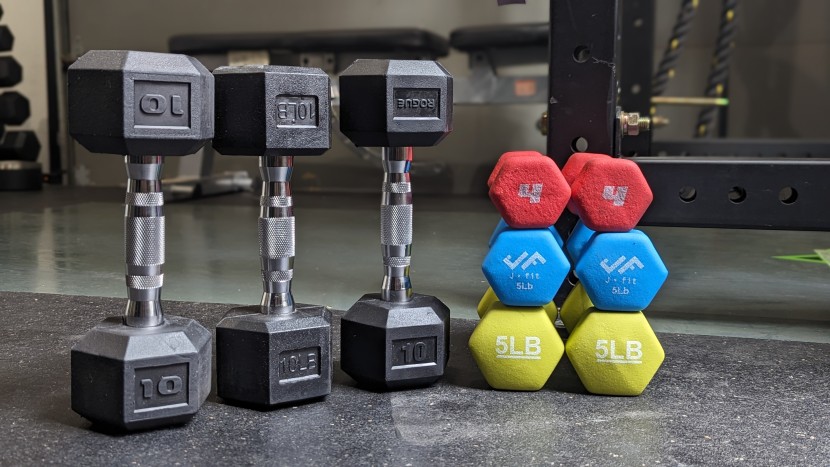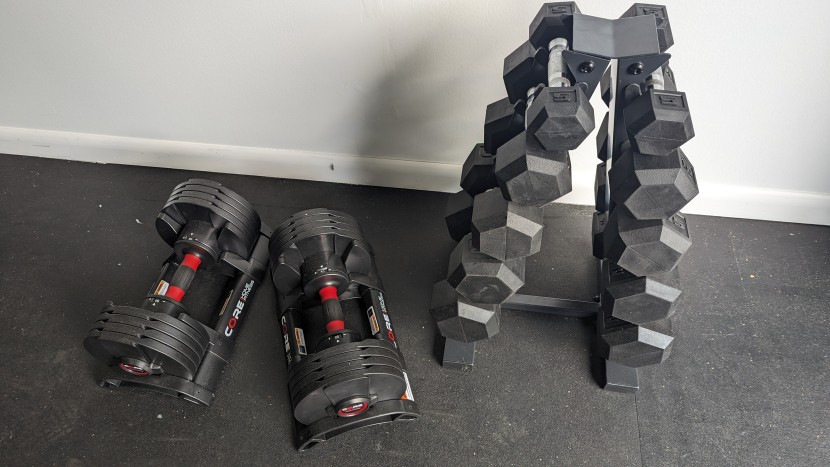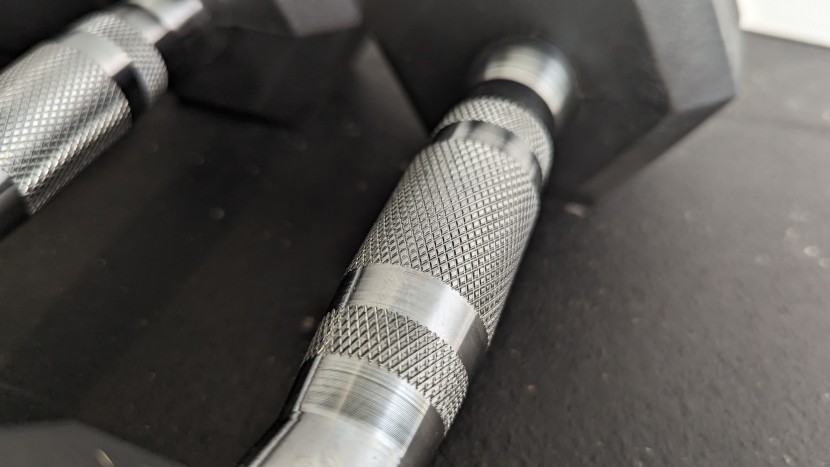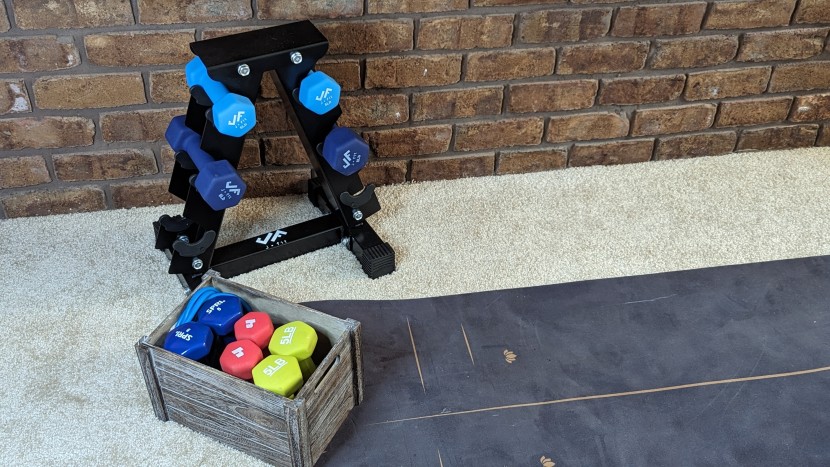Exercise Versatility
Chances are pretty high that you do more than just one exercise when you work out, so one of the most important factors we looked at when testing dumbbells was their exercise versatility. We considered dumbbells to be versatile if they could be used for a variety of different exercises, and we tested them with each one. Throughout our testing, we used each dumbbell to do bicep curls, bench press, shoulder press, tricep extensions, goblet squats, rows, clean and jerks, and snatches, and we used them as push-up bars. We evaluated whether the shape or design of the dumbbell impacted our range of motion, whether it rubbed or chaffed where we held it, and whether it could be dropped on the ground as well.
Ease of Use
Dumbbells are a remarkably simple piece of equipment, and there are relatively few major differences between most dumbbells. For the most part, you pick them up and set them down. Still, certain design factors make some easier or more pleasant to use than others. When measuring ease of use, we looked at two things. First, how easy it was to identify and select the right dumbbell. We noted whether the weight was labeled clearly and legible from multiple angles, and for adjustable dumbbells, how easy it was to select the weight desired. We tried this fresh and in the middle of workouts when we were already exhausted. Next, we considered how easy and comfortable each dumbbell was to grab. There are three factors here: knurling or grip, handle diameter, and handle length. We judged the relative roughness of the metal knurling and the grip factor for rubber-coated handles. We also assessed how thick each handle was, and how long, to determine if people with smaller or larger hands might have any issues.
Weight Options
In addition to wanting to use dumbbells for different exercises, it's also likely that you'll want to pick the right weight for you, whether that differs by exercise or by your fitness level. Therefore, we looked at the available weight options in the set of dumbbells we purchased, available selection options for adjustable dumbbells, and the overall weight range the manufacturer provides for each free weight in our lineup. We annotated the lightest and the heaviest options, as well as the interval at which weight increased.
Construction Quality
Since these heavy objects are designed to be repeatedly picked up, put down, and generally tossed around during a workout, construction quality is also part safety concern. Though we did not intentionally try to break any of the items during testing, we used them just as hard as one might in a gym and didn't take it easy. We looked for moving parts that might break, fragile plastic pieces, and the quality of their manufacturing process through things like poor craftsmanship, metal burrs, or seams. We also assessed whether or not the dumbbells were drop-proof and if they bounced, scuffed, or damaged the floor. Using a precision food-grade scale, we took weight readings of each dumbbell we tested. Then, we calculated the average weight and percent difference between what we measured and what was listed.
Storage
While some people have dedicated space for a home gym, others may use multi-purpose rooms like the basement or living room for a workout space at home. Since dumbbells are relatively bulky and heavy objects, understanding how well they are stored and transported is important. We measured the footprint of each set of dumbbells side by side to see the amount of floor space they'd take up. We gave points where dumbbells had space-saving designs, like an included rack or adjustable weights. Storage racks are helpful for not only storing your weights but also keeping them organized. For smaller dumbbells, we tried storing them in totes, boxes, and closets. None of the dumbbells are designed to be portable with any extra features, though as long as you can carry the weight, you can take them anywhere.

